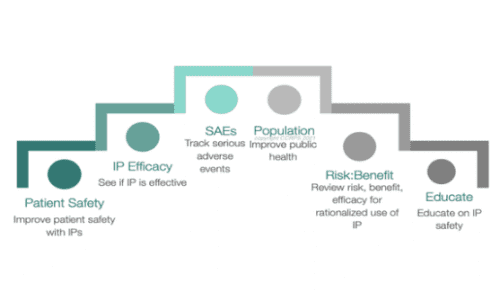What is a food allergy?
Food allergies refer to an allergic reaction (an adverse reaction) caused by the immune system to a particular protein in food. We know the mechanisms by which food allergies can occur in cats. However, we don’t know why. It is still not clear why certain cats have food allergies while others don’t.
What foods can be associated with food allergies
Cats with food allergies to beef, chicken, fish, and dairy are most commonly affected. Before a cat develops an allergy to a food ingredient, they must have been exposed to it. A cat can have an allergy to a food ingredient that it has eaten for a long period of time. Animals cannot become allergic to food they have never had to be exposed to. This area has received very little research and it is possible that other allergens have yet to be identified.
“A cat can still be allergic to an ingredient that they have consumed over time.”
What are the risk factors of food allergies in cats
Food allergies are often caused by genetic predisposition. Atopy, also known as inhalant or environmental allergies, is often a cause of food allergies. Many cats are sensitive to both environmental and food allergens. For more information about atopy, see the handout “Inhalant Allergies in Cats (Atopy).” Cats can develop food allergies anytime after they turn three months old. Both male and female cats can develop food allergies.
What are the signs and symptoms of food allergies in cats?
Allergy-prone cats often experience itching all year. Itchy skin can be found on the ears, face, stomach, ears, belly and legs. This itching can cause severe skin trauma (wounds, abrasions, hair loss) and excessive grooming. Recurrent Futtermittelallergie bei Katzen may develop in the ears and skin of affected cats. These infections can be the only sign of food allergy in some cats.
“These cats are so itchy that often they overgroom themselves, causing severe trauma to their skin (wounds and abrasions), and hair loss.”
Cats with food allergies can develop symptoms such as diarrhea or vomiting. This can lead to itching and scooting in cats with food allergies. Cats suffering from food allergies might also experience frequent bowel movements and strain when they urinate.
How can my veterinarian diagnose a food allergy?
Elimination diet trials are the best test to diagnose food allergies in cats.
An elimination diet trial is the best test to diagnose food allergies in cats. This involves giving your cat a diet free from any protein that they have been exposed to. This trial should take no less than eight weeks. You may choose to try a trial diet that includes:
* Veterinary Hydrolyzed Protein Diet. In this diet, the protein molecules are reduced to a size that is too small for your cat’s immune systems to recognize (e.g. Hill’s Prescription Diet z/d, Royal Canin Hypoallergenic Hydrolyzed Prot(r), Purina PROPlan Veterinary Diets HA Hydrolyzed (r).
* A Veterinary novel protein diet which does not contain any products from your cat’s past foods (e.g. Hill’s Prescription Diet, Royal Canin Selected Protein D(r), or Selected Protein VR[r], Rayne Nutrition Kangaroo MAINT(tm), or Rabbit-MAINT[tm]).
Home-prepared novel protein diet without any ingredients from your cat’s past diets. This must be prepared by a veterinarian nutritionist.
Your veterinarian will recommend the best solution for your cat.
Your veterinarian will recommend that your cat eat only food while she is on the elimination diet. It is important to not give your cat any other treats, nutritional supplements, or edible products during the trial. It is important to clean up after your family members, as even eating from the same plate can interfere with the food trial results. During the trial, your cat is limited to the prescribed food, water, or unflavored medications.
The next step is to do a food challenge if your cat has no allergy symptoms after the food trial. This is when your cat can be reintroduced to his old food. Your cat will be diagnosed with a food allergy if his or her symptoms improve after the food challenge.
“If your cat’s symptoms improve after the food trial, and then return to normal within a week, you have confirmed that your cat has a food allergy.”
Chronic itching can be caused by Futtermittelallergie bei Katzen. However, other conditions like yeast infection, external parasites, bacterial infections, and yeast infection may also cause itching. Additional testing is recommended to determine the cause.
What are the best ways to treat food allergies in cats?
Like other allergies, food allergies cannot be treated. They can be managed by avoiding ingredients that could trigger flare-ups. You may decide to keep your cat’s current food after he has been diagnosed with a food allergy. You may also be able work with your vet to find another food that will offer similar relief. Each cat has a different level of food allergy severity. Some cats can react strongly to trace amounts of an allergen. They will need hypoallergenic food that is carefully monitored. Other cats may be more sensitive and may tolerate a novel protein diet.
Although some cat food sold in retail stores might claim to be ‘limited-ingredient’, or that they do not contain an ingredient that your cat is allergic, it is important that you remember that retail pet food is not made with extreme safety and health protocols to prevent cross-contamination.


